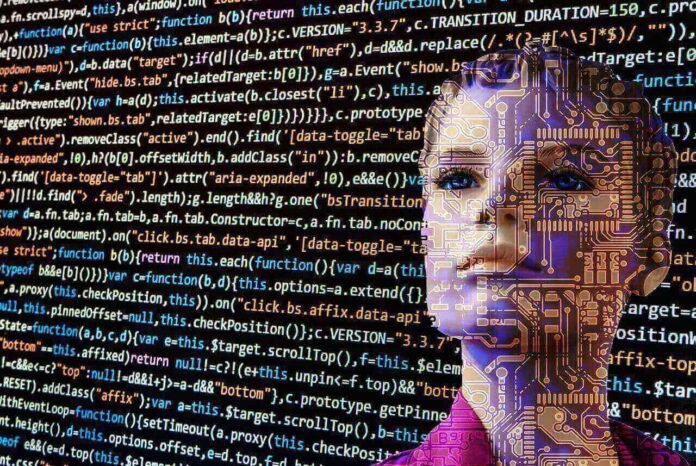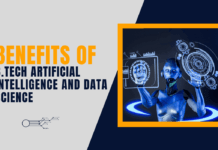Many of us may have this question in mind – ‘What is the difference between AI ML and DS?’ Artificial Intelligence popularly known as ‘AI’ is one of the branches of Computer Science.
Artificial Intelligence, Machine Learning, and Data Science work together as well. It is quite hard to figure out the difference.
The differences and similarities between AI, ML, and DS can range from conceptual, and foundational to abilities and skills. We will discuss how all these domains are interrelated to each other and what comparisons we can draw between them in terms of subjects, concepts, etc.
Difference between AI ML and DS
Although there may be connections and relationships among the phrases “data science,” “machine learning,” and “artificial intelligence,” each is distinct and has a specific function. Machine learning is a subset of data science, which is an all-encompassing word. The key distinction between the two terminologies is as follows.
Artificial Intelligence | Machine Learning | Data Science |
Comprising machine learning. | Artificial intelligence's subset. | Contains a variety of data operations. |
Computers can learn automatically with the aid of artificial intelligence, which combines massive volumes of data through repetitive processing and clever algorithms. | Machine learning employs effective software capable of utilizing data without being specifically instructed to do so. | For analytical reasons, data is collected, cleaned, and processed using data science techniques. |
The following are some of the more well-known AI tools: 1. TensorFlow 2. Scikit Learn | The most common tools used by machine learning are 1. Amazon Lex 2. IBM Watson Studio. | The following are some of the more well-known data science tools: 1. SAS 2. Tableau 3. Apache Spark |
The most well-known AI applications are chatbots and voice assistants. | Facial Recognition and recommendation systems like Spotify are two common examples. | Popular applications of data science include healthcare analysis and fraud detection. |
Difference between Artificial Intelligence and Machine Learning
Here is the list of significant differences between Artificial Intelligence and Machine Learning –
Artificial Intelligence | Machine Learning |
The goal of AI is to create intelligent computer systems that can tackle challenging issues like humans. | ML enables machines to gain knowledge from data to produce accurate results. |
Weak AI, General AI, and Strong AI are three categories of AI that differ in capacity. | ML can be divided into three categories: reinforcement learning, unsupervised learning, and supervised learning. |
The goal of AI systems is to increase the likelihood of success. | Accuracy and patterns are the main challenges with machine learning. |
A machine may imitate human behavior thanks to AI. | AI includes machine learning as a subset. |
Virtual assistants like Siri, chatbots, intelligent humanoid robots and other technologies are some applications of AI. | Applications of ML include Facebook auto friend tagging systems, search algorithms, and more. |
Difference between Data Science and Machine Learning
Take a look at the difference between Data Science and Machine Learning –
Data Science | Machine Learning |
Data science aids in generating insights from data that address the complexities of the real world. | By recognizing patterns in previous data, machine learning aids in properly predicting or classifying outcomes for new data points. |
Preferred skillset: – domain expertise – strong SQL – ETL and data profiling – NoSQL systems, Standard reporting, Visualization | Preferred skillset: – Python/ R Programming – Strong Mathematics Knowledge – Data Wrangling – SQL Model-specific Visualization |
Massive data is typically handled by horizontally scalable systems. | For demanding vector processing, GPUs are preferred. |
A set of tools for working with unstructured raw data. | The mathematical principles and algorithms that underlie them have a significant amount of complexity. |
Most of the input data can be used by humans. | Data input is altered specifically for the kind of algorithms being used. |
How do Artificial Intelligence, Machine Learning, and Data Science relate to each other?
The goal of artificial intelligence and data science is to replicate human intellect through machines through a variety of applications, platforms, and other tools. Artificial intelligence is the planned action-reaction to perception.
Different components of this pattern or loop are used by data science to address particular issues. For instance, data scientists attempt to find patterns using the data in the first step, Perception. Similar to the previous step, planning involves two elements:
- Finding all logical solutions
- Identifying the best solutions out of all solutions
Data science develops a framework that connects the aforementioned ideas and aids in business advancement.
The best way to understand machine learning is in the context of its environment, or the system it’s utilized inside, even though it can be explained by treating it as an independent subject.
Simply described, machine learning is the interface between data science and artificial intelligence. This is because it involves gradually learning from data. AI is the tool that data science uses to obtain outcomes and answers to certain issues. But it’s machine learning that makes it possible to accomplish that. The Search Engine on Google is an actual instance of this.
Data science specifically involves machine learning and AI. Deep Learning is a sub-technology that is covered by machine learning itself.
A type of machine learning is deep learning. However, it differs in the usage of neural networks, where we partially mimic brain function and employ a 3D hierarchy to find patterns in data that are far more valuable.
Wrapping Up
Despite the overlap between data science, machine learning, and artificial intelligence, each field has its application fields and unique features. Data science specialists now have more chances thanks to the data science market’s expansion of numerous service and product sectors.
Nowadays, B.Tech courses like B.Tech in Artificial Intelligence offer specializations in all three domains and students can choose from any of them depending on their future goals and career obligations.






